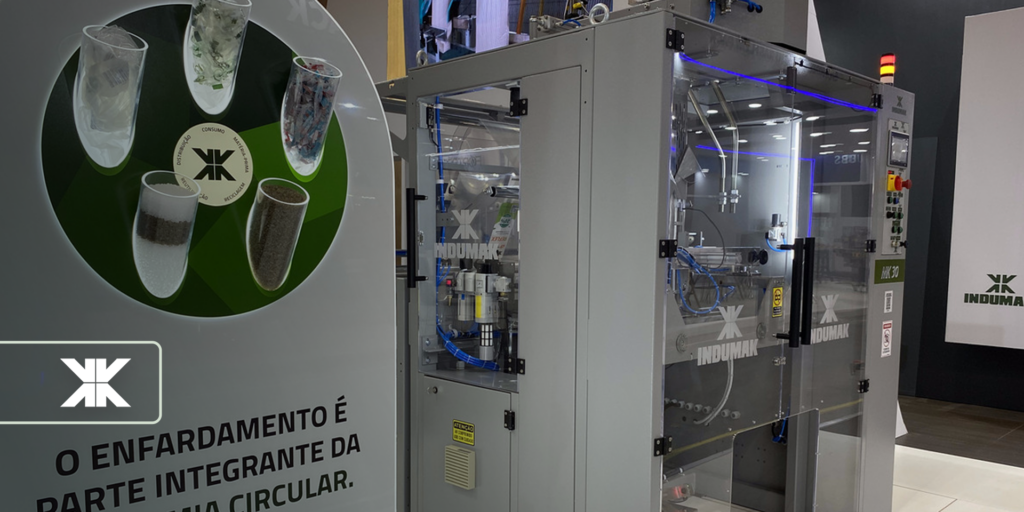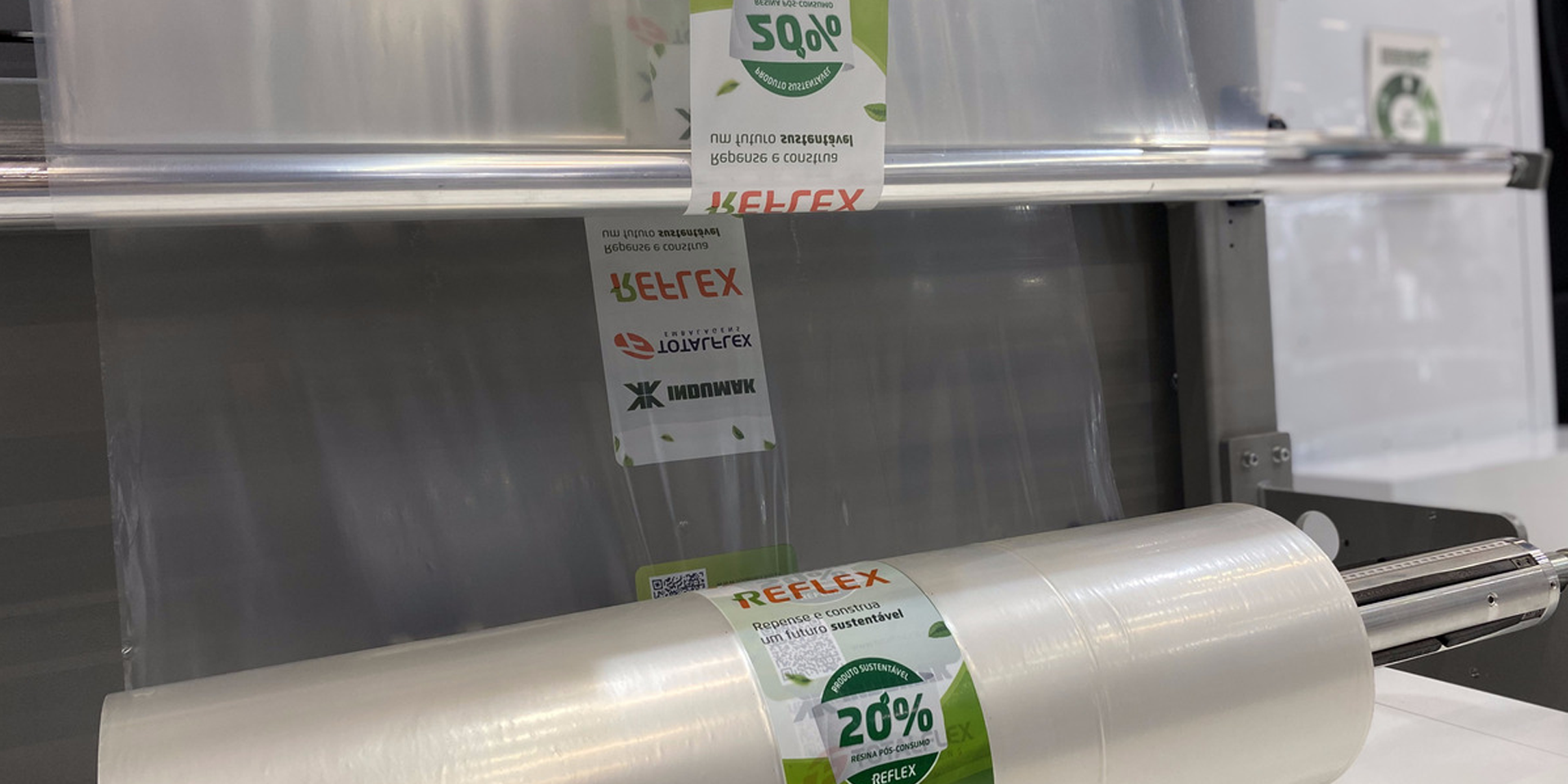
Categoria: Management, Processes
INDUMAK TAKES UP ON THE CIRCULAR ECONOMY TO REDUCE RAW MATERIAL WASTE
Indumak, concerned about its social role and always attentive to market innovations, has been investing and encouraging the circular economy.
The possibility of packaging products through automation helps to contribute to the reduction of raw material waste in the industry.
Thus, by using precise equipment and, with the alternative of using PCR plastic (Post-Consumer Recycled or recycled post-consumer), formed by plastic waste from industries, Indumak proposes the use of this material to customers, becoming a principle sustainable.
It is also worth noting that correctly discarded plastic moves the economic chain, but also ensures the production of materials of guaranteed quality.
Therefore, PCR plastic is a resin made from products already manufactured for other purposes and opens up possibilities for awareness of recycling and reuse.
What is Circular Economy?
The circular economy is a model that seeks to break with the traditional linear system of production and consumption. Instead of following the “take-make-discard” cycle, the circular economy promotes the reuse, recycling and recovery of materials, minimizing waste.
In this proposal, the products are designed to have long durability, to be easily repaired and updated. When they reach the end of their useful life, their materials are recovered and reintegrated into the production chain.
In addition to reducing the environmental impact, the circular economy also creates economic opportunities, such as creating new jobs and promoting innovation.
By adopting efficient waste management practices, such as recycling and composting, it is possible to minimize the amount of waste going to landfills, reducing pollution.
The transition to a circular economy is key to addressing environmental challenges and building a more sustainable future. By supporting and promoting this model, we can contribute to the preservation of natural resources and the reduction of impacts on the environment.
Indumak and the circular economy: in search of sustainable development

For Indumak, this is one of the relevant topics to be addressed with its customers and, therefore, will be mentioned during Fispal, the largest fair in Brazil for solutions to serve the food and beverage industry, which will take place between the 27th and 06/30, at the São Paulo Expo.
Visitors who pass by our stand will be aware of the latest news, which includes both the launch of new machines to serve the baling segment, as well as information related to the circular economy.
A lot is discussed about the use of plastic as harmful to the environment, however its reuse in the way that Indumak believes, allows the protection of the product at the time of packaging, the low cost and its ease of use, whether in the packaging or in the other stages of logistics.
“Our immersion in the theme of the circular economy is absolutely necessary, having the opportunity to lead a change of perspective in the environment in which we are inserted: the use of flexible plastic packaging in the distribution of products. The news and campaigns that have attracted the spotlight do not tell everything about the subject and are not so clear about the real conditions of replacing plastic with other materials”, commented Gelson Schmidt, commercial director of Indumak.
“Plastic is and will continue to be the most viable means for our society to deliver food safely and economically. Our mission right now is to deal seriously and responsibly with the disposal of plastic after its use (both as an organization and as a consumer), in order to reintroduce it into the production and distribution chain. This is our role”, he concluded.
Indumak’s mission is to “constantly evolve with reliability and results”, as well as maintaining our values of commitment, respect, ethics and responsibility towards the internal public, customers, partners and society in general.
We believe there is no way to think about innovation and evolution without taking into account sustainability and the reuse of raw materials.
Did you like the content? We are always producing new materials with management and production tips.







